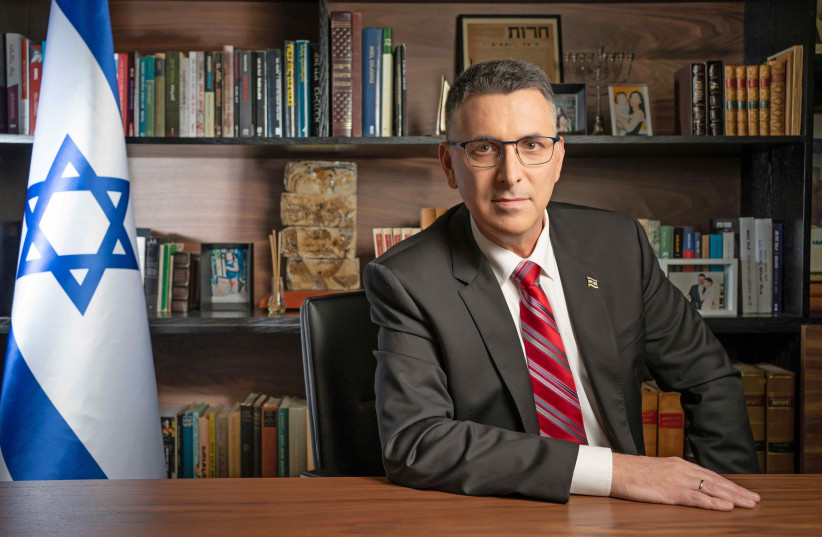Justice Minister Gideon Sa’ar and former attorney-general and Supreme Court justice Menachem Mazuz took opposite sides of the debate on Thursday regarding the question of splitting the powers of the attorney-general into two roles.
Although the two legal titans were not on stage together, interviews of both of them were presented one after the other as part of an Israel Democracy Institute virtual conference.
Sa’ar has made splitting the attorney-general’s powers into a separate chief prosecutor and separate chief legal adviser one of the main campaigns of his time as justice minister.
He told the conference he hoped to make the major change “after choosing the next attorney-general and with him.”
“In a few days we will be finishing assembling the [Attorney-General] Selection Committee,” Sa’ar said, adding that the change had not been possible in the early months of his term since “it will also need a law passed by the Knesset,” and the issue could prove controversial for the coalition’s liberal wing.

However, unlike Sa’ar’s initiative to pass a new Basic Law to set the separation-of-powers relationship between the different branches of government, which he admitted is likely frozen by political disagreements within the coalition, he appeared more confident that he would succeed in splitting the attorney-general’s powers.
Ironically, Mazuz is more willing to compromise on the Basic Law for setting the separation of powers, which is less likely to pass.
Mazuz said although he personally opposes any Basic Law that would give the Knesset the power to override Supreme Court vetoes of Knesset laws, he would be willing to concede on this if the override required a super majority of 65-70 MKs and to solidify the judiciary’s authority in other areas.
But Mazuz was categorically opposed to splitting the attorney-general’s powers, saying most democratic systems like Israel’s have one person wielding both prosecutorial and legal-adviser powers.
He rejected arguments made by others that some countries split these powers up. Some countries, including the US, even combine the justice minister’s role into one person, along with being chief prosecutor and chief legal adviser, he said.
His implication was that critics incorrectly conflate countries that do keep the justice minister’s role separate with the idea of keeping the chief prosecutor and chief legal adviser separate.
“Separation will cause damage in almost every arena and will for sure politicize the job,” Mazuz said. “The attorney-general role is built as apolitical, professional and independent… part of this happens because he is the chief prosecutor. He does not represent the government. He represents the nation, so he cannot be a political appointment.”
Next, he gave an example where he was prosecuting a government official for a white-collar crime that was accomplished using a computer system with no controls.
Since, Mazuz was also chief legal adviser, besides indicting the specific official, he was also able to simultaneously order new rules for the relevant agency to place controls on using the computer system so that there would be no access without leaving a clear trace.
Both Sa’ar and Mazuz supported new legislation that could lead to disqualifying former prime minister Benjamin Netanyahu from running for prime minister while indicted, though they had some different ideas about how to proceed.
